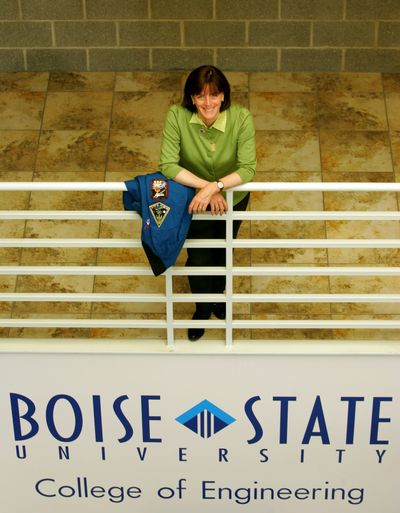Astronaut and teacher talks about lessons, challenges of space

Idaho schoolteacher Barbara Morgan was next in line to be NASA’s teacher in space when the first designee for that post, Christa McAuliffe, was killed in the Challenger space shuttle explosion in 1986.
Twenty-one years later, Morgan went into space, flying a mission on the space shuttle Endeavor, talking live with schoolkids from space and helping complete repairs to the International Space Station. Now, she’s distinguished educator in residence at Boise State University, where she works to advance science and technology education for both children and adults.
Q. What lessons did you learn from going into space?
A. I really got a better sense of what human beings are capable of, with the human mind and the human ability to work together and to have ingenuity and curiosity and imagination. A real example of that is our international space station. It’s an amazing, amazing place. We’ve got 16 nations around the world working together on it.
Q. What surprised you most about space travel?
A. The sheer beauty of what you see. It’s beyond what you could imagine.
Q. What can kids learn from the space program?
A. What’s worth risking and what isn’t worth risking. Doing the right things when things go bad, learning from our mistakes. An example of that is after the Challenger accident when NASA asked if I would continue on the program. We had kids all over the country watching to see what adults do in a bad situation, a horrible situation, and I felt it was really important that we show them that adults do the right thing … we figure out what we did wrong, try to fix it the best we can and keep moving forward. I think also they can learn a lot about courage, I think courage is really contagious. They can learn about the wonders of the universe. There is so much out there, and in 50 years of space exploration, we have learned a lot, but we really know almost nothing. It’s just a place for never-ending, open-ended opportunities and possibilities.
Q. How can teachers motivate kids to learn about science?
A. Really getting out and doing it. One of my favorites is taking a hundred-inch hike right in your own schoolyard with magnifying lenses, and it’s amazing what you can learn science-wise from there.
Q. What are your hopes and dreams right now?
A. I would love for every one of our young people in this state to go on to college. There’s just nothing that can replace, I think, a good college education. This is a real immediate one also, is I would really like for us to change the conversation in this country about what it means to be a teacher. It is such an important job, and it is a joyful job, it’s very, very challenging, it’s very intellectual.
Q. What’s your advice to teachers and to kids?
A. For teachers … they have everything they need to do a good job. For kids, I’d say this for our teachers too, but keep reaching for your dreams. I think the sky truly is no limit.